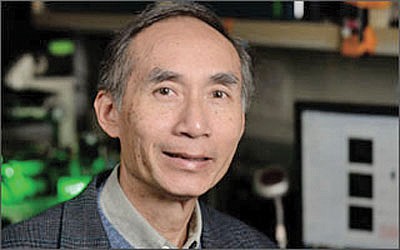BALTIMORE — With $2.46 million in support from the National Institutes of Health, Johns Hopkins University is teaming up with two historically black Baltimore institutions, Morgan State and Coppin State universities, to cultivate a diverse group of highly trained biomedical researchers.
Johns Hopkins is one of 23 schools nationwide to receive funding from NIH’s Institutional Research and Academic Career Development Awards program. IRACDA promotes collaborations between research-intensive institutions like Johns Hopkins and partner universities that demonstrate a commitment to training underrepresented groups.
Supported by the grant, the three universities are establishing ASPIRE (Academic Success via Postdoctoral Independence in Research and Education), an intensive training program in translational research on challenges to human health. The goal is to provide new professional development opportunities for researchers who have completed their doctorates in bridges engineering, medicine and biology.
“The ASPIRE program represents an exciting partnership between Johns Hopkins, Morgan State, and Coppin State,” said Leslie Tung, professor of biomedical engineering at Johns Hopkins and director of ASPIRE. “Our goal is to train the next generation of biomedical scientists and engineers, providing them with the knowledge and skills necessary to successfully pursue academic careers in research and teaching. By the end of their experience, ASPIRE scholars will be prepared to address the world’s most pressing health concerns through biomedical discovery, innovation and education.”
Through ASPIRE, participants will conduct research under Johns Hopkins faculty mentors and develop academic skills through pedagogy workshops, course development opportunities and teaching experiences under faculty members at Morgan State and Coppin State. The program will support two new postdoctoral scholars annually over the next five years, providing each trainee with a stipend and funds for research supplies, conference travel, and other educational expenses.
During their three years in the ASPIRE program, scholars will spend 75 percent of their time conducting biomedical research and the remaining 25 percent learning about teaching and working in the classroom. Research projects will focus on diverse topics in biomedical engineering, applying quantitative methods and technical innovations to the diagnosis and treatment of disease for the advancement of human health. To promote interdisciplinary training, each scholar will have a primary research mentor from the Johns Hopkins School of Engineering, as well as a clinical collaborator from the Johns Hopkins School of Medicine.
“Currently, we’re seeing a significant lack of diversity in biology, medicine, and engineering, especially as you progress along the academic career trajectory, from college to graduate school to faculty,” Tung said. “That’s what we’re trying to change. Through these mentorship and training opportunities, ASPIRE will provide encouragement to underrepresented student groups and inspire them to pursue careers in biomedical research and engineering.”
